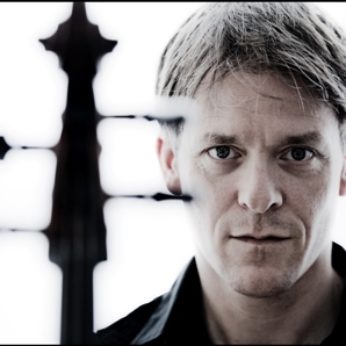Composer: Johann Sebastian Bach (b. 1685 - d. 1750)
Performance date: 02/07/2014
Venue: St. Brendan’s Church
Composition Year: 1720
Duration: 00:27:02
Recording Engineer: Richard McCullough, RTE
Instrumentation: vc
Instrumentation Category:Solo
Artists:
Alban Gerhardt -
[cello]

This is the last of
Bach’s six cello suites, a sublime celebration in D major that seems to
translate the cello into another universe. In fact it was written for the
violoncello piccolo, an experimental five-string cello whose fifth string was
tuned to the E, a fifth above our A string. In the absence of this instrument
the passages written for this top string demand extensive use of high thumb
positions.
The long, powerful
Prelude is in the form of a moto perpetuo
based on a unison alternating between two strings and on an insistent triplet
rhythm. The unison is at first with the
open D string, then moves up to the A string and on up to the E. The music
dances with joy from the first note; there are no doubts in this universe as
the music climbs to dizzy heights with extraordinary feats of virtuosity.
The Allemande is a
lavishly embellished movement in which the four-beat bars are almost concealed
by its expressive ornamentation – hardly
an allemande at all, suggests Pieter Wispelwey, an aria and prayer of dumbfounding beauty. The Courante returns to
a world of heady virtuosity, where the basic metre of the dance is made even more
hectic by the whirling sixteenths.
The Sarabande has a
majestic tread high in the cello’s register, as have all the movements,
overwhelming us with the double and triple stopping that takes us through its
elaborate harmonic progressions. Wispelwey describes the second half as a wheel of eternity, where it seems the
quarter note movement can never be stopped.
The Gavotte returns
to the spirit of the Courante with its strong dance flavour. Big chords combine with a strong melody to
generate an enthusiastic drive and rhythmic energy. The second Gavotte is quieter, and introduces
the sound of the old French bagpipe, the Musette. The final Gigue goes over the
top completely and frenzy is driven to
the limit in the orgiastically repeated sixteenth-note pairs …here the domain
of the cello suite is left behind forever.
Copyright © 2025 West Cork Music. All rights reserved.
Designed and developed by Matrix Internet